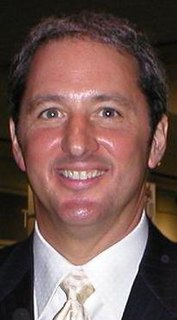A Quote by Morris Raphael Cohen
Lastly, literature and philosophy both allow past idols to be resurrected with a frequency which would be truly distressing to a sober scientist.
Quote Topics
Related Quotes
One of the things I want to do in the book is to explore how philosophy can be done in literature. I start doing that in the first chapter, by introducing the idea of "philosophy by showing". What literature/philosophy shows is how to look at some important facets of life in a new way, thus changing the frame in which subsequent philosophical argument proceeds.
Philosophy by showing - including philosophy in literature - does truly valuable work in leading us to new perspectives from which our arguments can then begin. It does so by introducing new synthetic complexes, which we then reflect on from various points of view. When the complexes survive and grow, that initial showing has been philosophically decisive.
But the idols of the Market Place are the most troublesome of all: idols which have crept into the understanding through their alliances with words and names. For men believe that their reason governs words. But words turn and twist the understanding. This it is that has rendered philosophy and the sciences inactive. Words are mostly cut to the common fashion and draw the distinctions which are most obvious to the common understanding. Whenever an understanding of greater acuteness or more diligent observation would alter those lines to suit the true distinctions of nature, words complain.
There are, of course, a number of epistemological questions, some of which lie more in the province of the philosopher than they do the economist or the social scientist. The one with which I am particularly concerned here is that of the role of knowledge in social systems, both as a product of the past and as a determinant of the future.
I think that, if aliens did exist, they would exist at a higher frequency. Being at a higher frequency, you would have to be more evolved than what we consider to be evolved. If there were aliens, I personally believe they would have to resonate at a higher frequency to be able to time travel, or to blink in and out of dimension.
I don't want to get too dippy about all this. If you take the view of the scientist and everything is in a state of vibration, then every note is a vibration, which has a certain frequency, and you know that if you put 40 beats into a frequency it's going to be the same note every time. You take that into infrasound and people can be made to be sick, actually killed. Taking it the other way, not to be too depressing, what about euphoria, etc., and what about consciousness being totally... no, I won't go into that one. Time warps.
Frequency generators have been around for decades. Royal Rife was using frequencies in the 1920's and 1930's to cure cancer. Today there are several machines using frequencies to balance out a person's energy thus eliminating the energetic frequency of the imbalance or disease. When the frequency of the disease you have has been neutralized, the disease goes away. These machines absolutely, 100 percent allow the body to virtually cure all diseases.



































